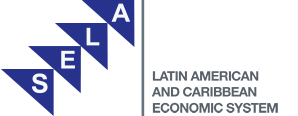BACKGROUND
Due to the changes taking place in the wake of globalization, small and medium-sized enterprises (SMEs) and the rural producers are involved in the context of growing competitiveness. Their access to national and international markets is increasingly influenced by their limited marketing capacity, barriers for identifying trading partners, difficulties in producing quality items, the limited availability of financing or the reduced variety of products available to them.
The development of SMEs consortiums represents an effective and viable way to address such problems. They are usually subdivided into export consortiums and quality consortiums:
- Export consortiums are voluntary partnerships of companies for promoting goods and services of its members abroad and facilitate the export of their products or services through joint action.
- Quality consortiums (or regulatory boards) are groups of producers involved in the production of food products or typical handicraft. The objective of such alliance is to strengthen the collective value and marketing of their traditional products, strongly associated to their country.
When the products being promoted collectively by producer groups are typical of an area, they may play the role a flagship product for the region of origin. For this reason, the consortiums are considered to be catalysts for local economic development.
This course is based on the experiences gained in the development of SME clusters and consortiums by the following organizations: the United Nations Industrial Development Organization (UNIDO), the Italian Federation of Export Consortia (Federexport), the International Labour Organization (ILO) and the Ibero-American Programme of Institutional Cooperation for the Development of Small and Medium-sized Enterprises (IBERPYME), implemented by the Latin American and Caribbean Economic System (SELA).






